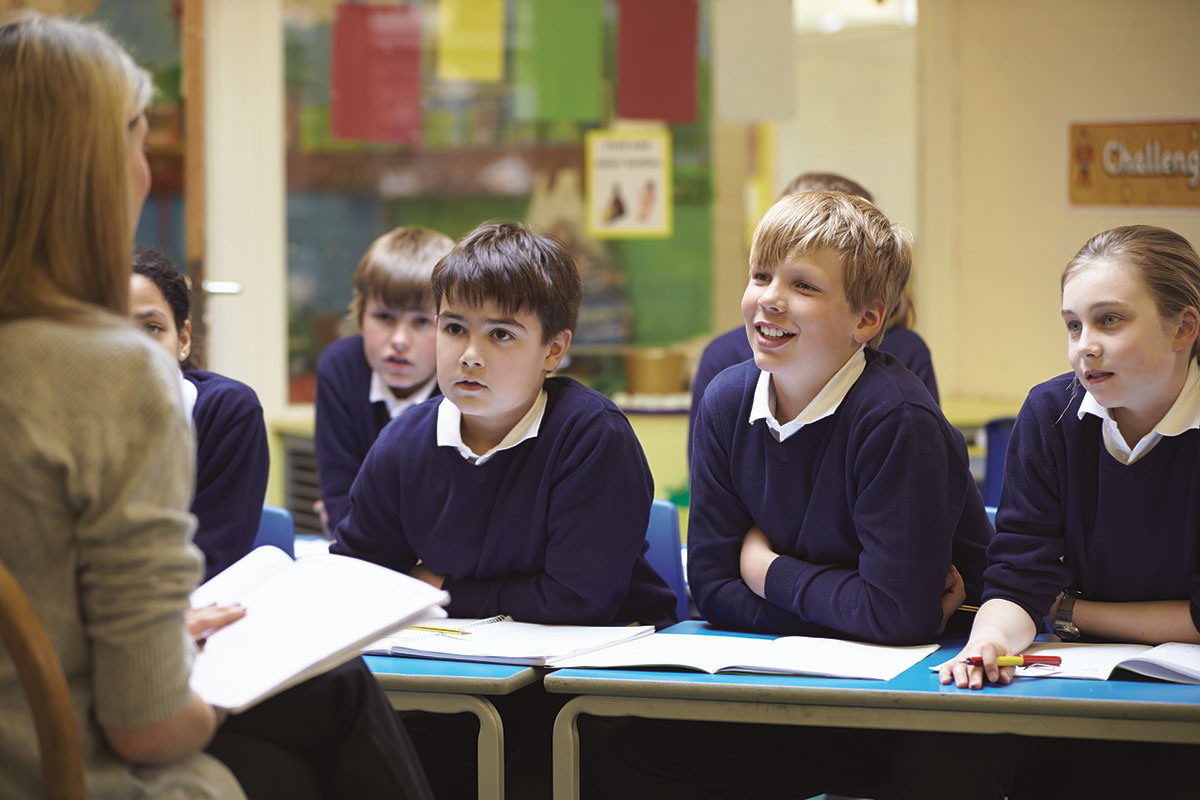Libraries, the heart of the school

“When libraries provide access to books and impetus to read, they are potentially influencing students’ life outcomes.” Says Dr. Margaret Merga

Dr. Margaret Merga is an author, Senior Lecturer at Edith Cowan University whose research work focuses on the social and environmental influences on literacy engagement and acquisition and the position of reading and books in the contemporary world. Her work also explores the role that librarians, teachers and parents can play in supporting young people to become life-long readers.
Margaret is also the keynote speaker at the National Education Summit, Capacity Building for School Libraries Conference, held at the Brisbane Convention and Exhibition Centre. The Conference is a meeting place for those in the school library field and will focus on key themes such as the power of reading and building a diverse collection.
We spoke to Dr Margaret Merga about the importance of Libraries in today’s school environments.
You describe libraries as being the ‘heart of the school’; what important functions do you think libraries deliver within a school community?
School libraries can play in important role in influencing and shaping school culture, and as a literacy researcher, I’m most interested in how school libraries can support a broader culture of reading for pleasure. Of course, libraries and their staff do much more than this, but as there is ubiquitous and perennial focus on literacy in our schools, I feel that this is one of the most important things that our libraries have to offer. Literacy skills associated with our students’ academic, vocational and social opportunities in school and beyond, and regular reading is strongly related to building and sustaining students’ literacy skills. This means that when libraries provide access to books and impetus to read, they are potentially influencing students’ life outcomes.

How can libraries assist students who may be struggling with literacy?
This is an important issue, with the number of struggling literacy learners growing in Australia in recent times. Nearly one in five Australian adolescents falls in the low performer category in international literacy assessment. While there are issues with using these assessments as sole indicators of student literacy performance, they do highlight the need to bolster our support for these students. My recent research explored what teacher librarians do to support struggling literacy learners in their schools, finding that they provided support by identifying struggling readers, providing them with age and skill-appropriate materials, undertaking skill scaffolding supporting choice, supporting students with special needs, providing one-to-one matching, promoting access to books, enhancing the social position of books and reading, reading aloud to students, facilitating silent reading, and preparing students for high-stakes literacy testing. My paper on this is available for free here.

Are there any other key learning areas libraries can assist students with?
Absolutely. There is data on the other learning areas and activities supported by school libraries beyond building students literacy and literature engagement and learning. They are too numerous to list here, but I can highlight some of the key points. They can play a valuable role in supporting inquiry-based learning and building students’ digital and critical literacies, which are essential for navigating today’s complex media environment and grappling with risks such as online scams and fake news. They collaborate with staff to enhance student learning across diverse learning areas. They develop LibGuides and other research guides for electronic and print resourcing, to guide students to quality information sources, while scaffolding the skills students will need to find them themselves. They offer expertise in information technology, as well as bibliographic and research support. They may also play a role in fostering student wellbeing. These are just some of the ways that libraries contribute to student learning beyond my key focus area of literacy.
In your view, what are some of the significant emerging challenges for school libraries in 2020?
Perhaps the biggest challenge is the current fashion for schools without libraries or books. There is poor understanding of the positive association between adequately resourced libraries, qualified library staff, and student literacy outcomes. There seems to be no knowledge of the research that suggests that young people prefer to read books in paper form, and that reading on screens and in paper form may not lead to equal reading comprehension. These schools do not understand the link between access to books and libraries, and student literacy outcomes.
At the same time, we are not seeing superior literacy and numeracy outcomes in schools that heavily invest in ICT, so such investment is not a solution when we look to improve our students fundamental skills. The biggest threat to school libraries are reactive resourcing choices that are made in response to fashions and whims, rather than research findings. We also need to maintain the presence of qualified teacher librarians in our school libraries to ensure that student learning and engagement in our libraries is optimised.
What are some of the important messages you will share with educators during your keynote session at the National Education Summit?
I’m going to be focussing on how school libraries should play a key role in building student literacy, emphasising the importance of this for our students. We know that students with greater access to school libraries do better in literacy testing, and our recent research found that access to libraries is strongly associated with students’ reading engagement, with reading engagement related to students’ literacy attainment. I’ll discuss diverse factors that may influence reading engagement and discuss how libraries can implement and measure the efficacy of literacy-supportive practices in their schools. I’ll also discuss recent findings about struggling literacy learners beyond the early years, to identify innovative ways that qualified library staff can work with teachers and school leadership to optimise outcomes for our most vulnerable literacy learners. The focus will be to provide audience with the recent research in this space, but keep it really linked and grounded in practical applications. This means that you’ll be able to use what you learn in your schools right away.
TO REGISTER FOR THE CAPACITY BUILDING SCHOOL LIBRARIES CONFERENCE
VISIT NATIONALEDUCATIONSUMMIT.COM.AU

National Education Summit
When: Friday 15 – Saturday 16 May 2020
Where: Brisbane Convention and Exhibition Centre
More Info: www.nationaleducationsummit.com.au
Facebook: www.facebook.com/NationalEducationSummit
